Some Bitter Drinks are Served in Life's most Humiliating Moments//Algunas bebidas amargas se sirven en los momentos más humillantes de la vida [ENG/ESP]
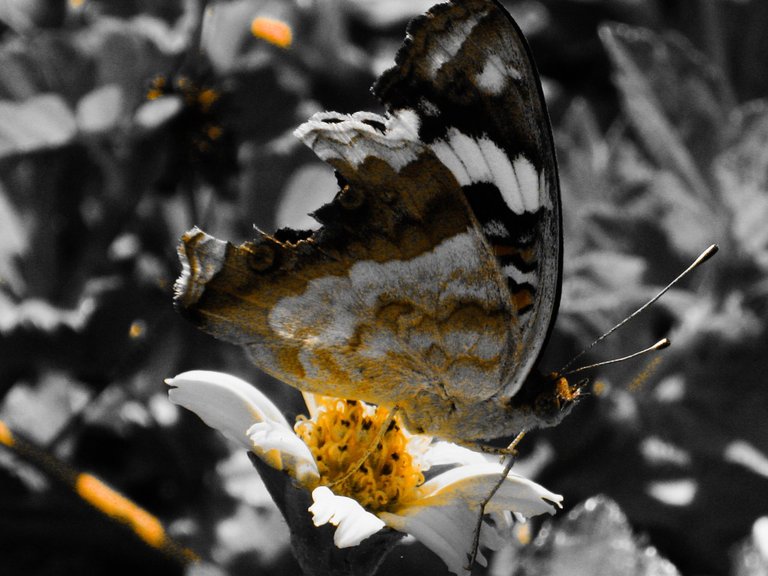
To stay calm and composed even when you're boiling with rage inside isn't something everyone can do. I've seen people overreact in trivial situations, like a teenager forgetting to greet them or a retailer giving them skimmed milk instead of cream milk. Most of the time, I understand that this reaction is a result of several frustrating situations that occurred before that moment, making it somewhat understandable.
I grew up as a calm little girl; I can't remember throwing tantrums or doing something so out of character, except for that one time when I bit my elder brother so hard that he screamed, shocking everyone in the sitting room. The senior man was always fond of taking my meat, mainly because I chose to eat it after I was done with my food. I've always been calm, even when it hurts. I've noticed that the more it hurts, the less I react. I am still like this today; sometimes I wonder if I'm just naturally calm or if I simply don't know how to react when I'm angry, hurt, or frustrated.
This reflection is my participation in the initiative proposed by @charjaim titled "Bitter Drinks, What Do You Give Permission to Bring Out the Worst in You?"
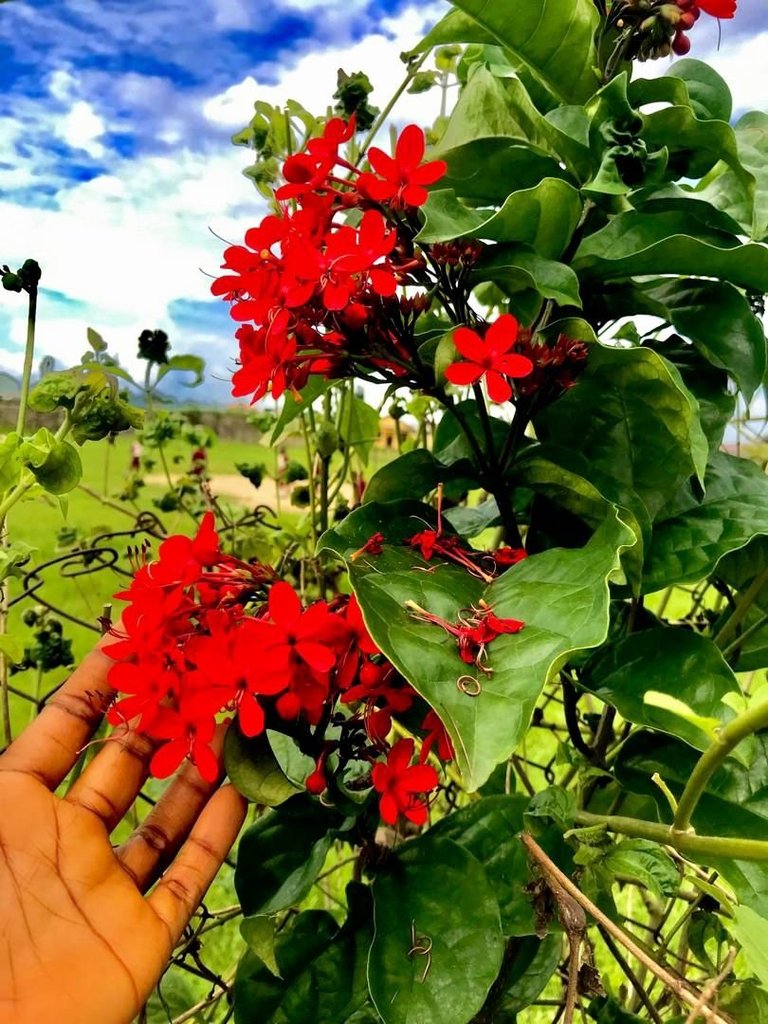
Not all bitter drinks are brewed in a teacup; some are served in life's most humiliating moments.
I was fourteen when I first experienced hatred from a teacher, and I hated him back immediately. I was in Senior Class 2 that year. I was one of the best female students in sports like volleyball, badminton, and table tennis. I played these three sports so well that I was crucial during inter-house sports competitions. This particular year, I was in Yellow House, and our house master was a staff member known for his ego and controlling behavior. No matter what I did, he never genuinely appreciated my effort. "You're winning for yourself," he would say, brushing off every game I played and every medal I brought to the team like they were nothing. He made sure I felt less important and intimidated. He yelled at me over little things like mistakes, expressions, or just existing outside his expectations. I was constantly angry and emotionally conflicted.
There were moments when I wanted to step back from the games entirely to let those he "believed in" prove themselves. But deep down, I couldn’t stand the thought of my house losing because I let one man get under my skin.
Then he did something that amazed me on the day I was to play badminton. I had a severe headache and went to the school clinic to get medication. While I was still at the reception, two of my teammates came rushing in. "Our house master is looking for you. He’s really angry," they said. I told them I was getting medicine, and they left to inform him. By the time I returned, it was ten minutes to the match. He exploded, yelling at me for "wasting time," saying I should’ve just "managed" the pain because "badminton isn’t that stressful." I had the urge to tell him to find a replacement, to yell back and ask why he never appreciated or cared about me, to remind him that I gave my best to everything I do. But somehow, I couldn't say a thing aside from an apology. You know, there’s something my dad always told me:
"Never let your emotions stand in the way of your success. Wear a thick skin." So, I swallowed the urge to respond. I played the match, and when our team came first, he just nodded in appreciation.
I had a very hard time throughout the event, and on the final day, I cried when I finally had the time to be with my parents.
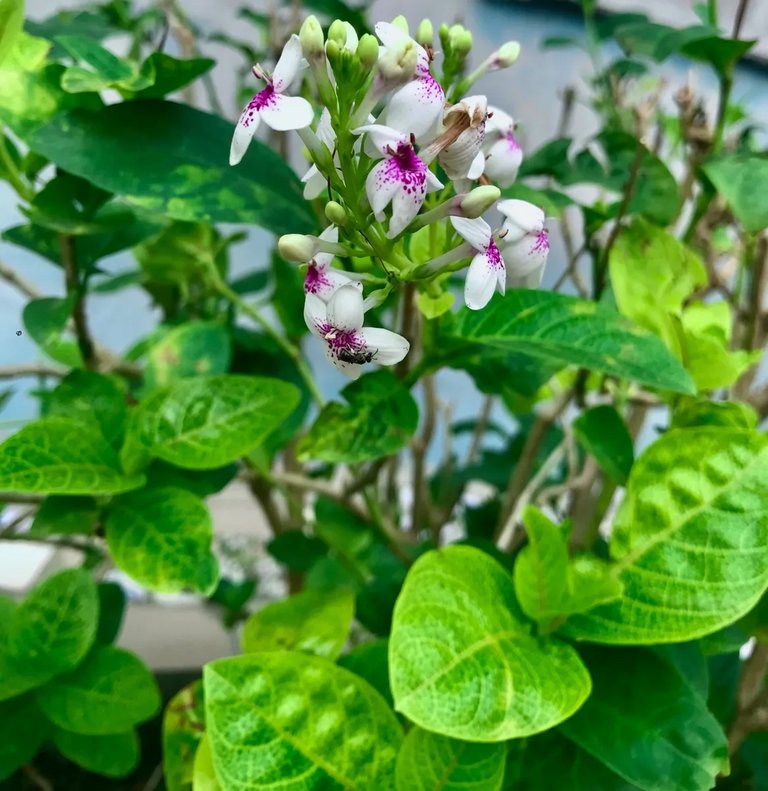
Just recently, I had a similar humiliating experience at the bank. I had gone to retrieve my ATM card that had been stuck in the machine. But the staff kept passing me around. No one really wanted to help. I sat for more than an hour, ignored and invisible. I was boiling inside. I stood up to leave before my frustration could spill over in a way I’d regret. But as I reached the gate, the first lady who had initially referred me stopped me. Without much explanation, she walked me back in and got my card. It didn't even take her 20 minutes.
These experiences taught me patience, not the passive kind, but the type that allows me to be in control. I’ve learned not to let people force me out of character.
From a young age, I noticed that most of the decisions I made out of anger never turned out well. So now, when situations like these happen, my inner voice whispers peace...
“Breathe. Let it pass. Don’t trade your peace for chaos.”
When I get home, I write it all down in my journal; uncensored, emotional, raw. I pour everything out in a way I never could in a conversation. And afterward, it feels like all the pain, the frustration, the bitterness, and the weight of the experience have dissipated, leaving behind only peace and comfort. Most nights, after writing, I fall asleep in a few minutes. Peacefully.
Some bitter drinks are served hot, through unfairness, disrespect, silence, bullying, or rejection. But even when I’m forced to swallow it, I remind myself that I don’t have to let it radiate and become a part of me. Because I've learned that peace, when chosen intentionally, is strength, not weakness.
Image 1 by @protokkol. Others were taken by me.
![LEER EN ESPANOL]
!Ser capaces de controlar nuestras emociones es algo que aprendemos a través de la experiencia o de la superación personal. Otros pueden tener la suerte de emular este nivel de madurez de sus padres u orientación, mientras que algunos pueden poseerlo de forma natural. Esto pone de relieve que somos diferentes, no sólo en apariencia, sino también en carácter y en los bloques que nos hacen ser quienes somos. Por lo tanto, manejamos las cosas de forma muy diferente: mientras yo me alejo de las relaciones tóxicas, mi amigo puede tolerarlas.
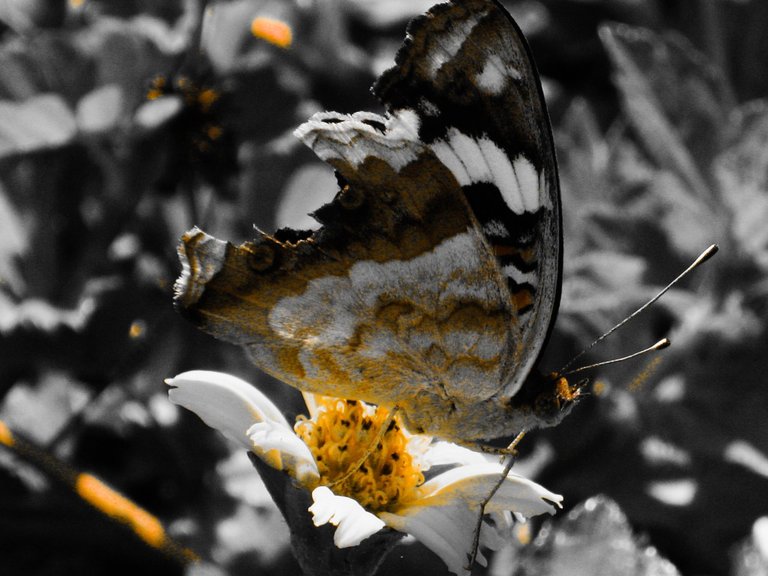
Mantener la calma y la compostura incluso cuando estás hirviendo de rabia por dentro no es algo que todo el mundo pueda hacer. He visto a gente reaccionar de forma exagerada en situaciones triviales, como que un adolescente se olvide de saludarles o que un comerciante les dé leche desnatada en lugar de leche en polvo. La mayoría de las veces, entiendo que esta reacción es el resultado de varias situaciones frustrantes que ocurrieron antes de ese momento, lo que la hace en cierto modo comprensible.
Crecí como una niña tranquila; no recuerdo haber tenido rabietas o haber hecho algo tan fuera de lo normal, salvo aquella vez en que mordí a mi hermano mayor con tanta fuerza que gritó, conmocionando a todos los presentes en la sala de estar. Al mayor siempre le gustaba quitarme la carne, sobre todo porque yo optaba por comérmela después de terminar mi comida. Siempre he estado tranquilo, incluso cuando duele. Me he dado cuenta de que cuanto más duele, menos reacciono. Sigo siendo así hoy en día; a veces me pregunto si soy tranquila por naturaleza o si simplemente no sé cómo reaccionar cuando estoy enfadada, dolida o frustrada.
Esta reflexión es mi participación en el iniciativa propuesta por el @charjaim , titulada "Tragos amargos, ¿a qué le das permiso para sacar lo peor de ti?"
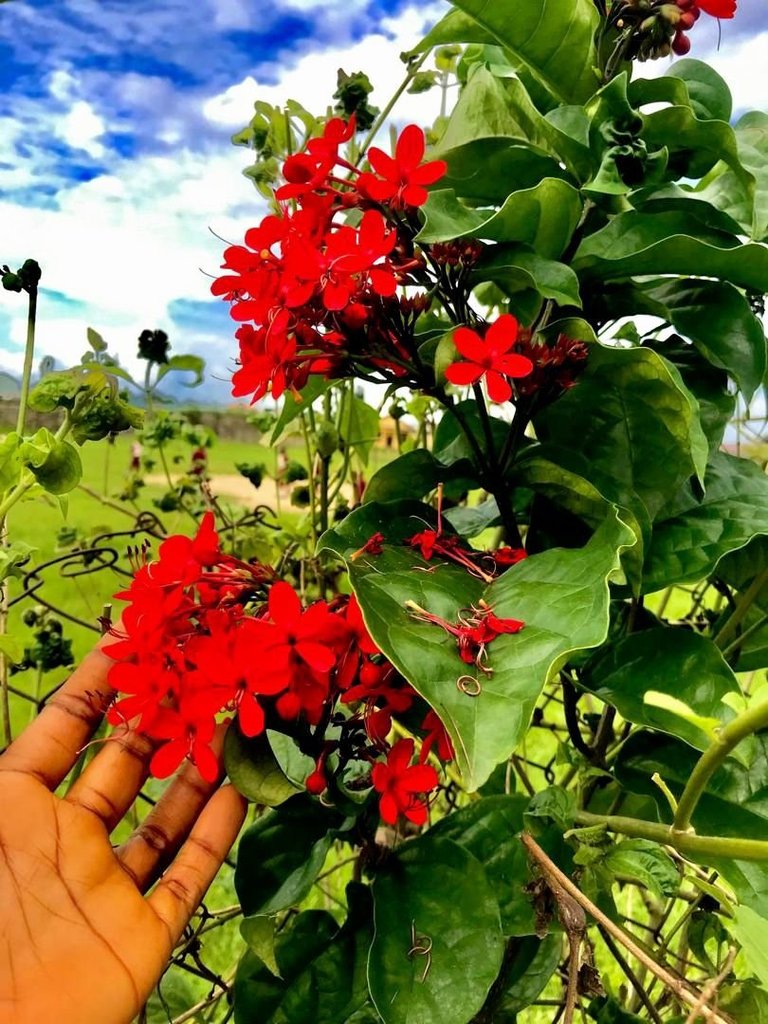
No todos los tragos amargos se preparan en una taza de té; algunos se sirven en los momentos más humillantes de la vida.
Tenía catorce años cuando experimenté por primera vez el odio de un profesor, y le devolví el odio de inmediato. Ese año estaba en el segundo curso. Era una de las mejores alumnas en deportes como voleibol, bádminton y tenis de mesa. Jugaba tan bien estos tres deportes que era crucial en las competiciones deportivas entre las casas. Ese año estaba en la Casa Amarilla, y el maestro de nuestra casa era un miembro del personal conocido por su ego y su comportamiento controlador. Hiciera lo que hiciera, nunca apreciaba de verdad mi esfuerzo. Me decía: "Ganas para ti", despreciando cada partido que jugaba y cada medalla que traía al equipo como si nada. Se aseguraba de que me sintiera menos importante e intimidada. Me gritaba por pequeñas cosas como errores, expresiones o simplemente por no cumplir sus expectativas. Me enfadaba constantemente y tenía conflictos emocionales.
Hubo momentos en los que quise retirarme por completo de los juegos para dejar que aquellos en los que él "creía" demostraran su valía. Pero, en el fondo, no podía soportar la idea de que mi casa perdiera por dejar que un hombre se me metiera en la piel. Entonces hizo algo que me asombró el día que iba a jugar al bádminton. Tenía un fuerte dolor de cabeza y fui a la clínica de la escuela a por medicamentos. Mientras estaba en la recepción, dos de mis compañeros de equipo entraron corriendo. "Te busca el maestro de nuestra casa. Está muy enfadado", me dijeron. Les dije que iba a por medicinas y se fueron a avisarle. Cuando volví, faltaban diez minutos para el partido. Explotó, gritándome por "perder el tiempo", diciendo que debería haberme limitado a "controlar" el dolor porque "el bádminton no es tan estresante". Me entraron ganas de decirle que se buscara un sustituto, de contestarle a gritos y preguntarle por qué nunca me había apreciado ni se había preocupado por mí, de recordarle que yo daba lo mejor de mí en todo lo que hacía. Pero, de algún modo, no pude decir nada aparte de una disculpa. Sabes, hay algo que mi padre siempre me dijo:
"Nunca dejes que tus emociones se interpongan en el camino de tu éxito. Usa una piel gruesa". Así que me tragué las ganas de responder. Jugué el partido, y cuando nuestro equipo quedó primero, él se limitó a asentir en señal de agradecimiento.
Lo pasé muy mal durante todo el evento, y el último día lloré cuando por fin pude estar con mis padres.
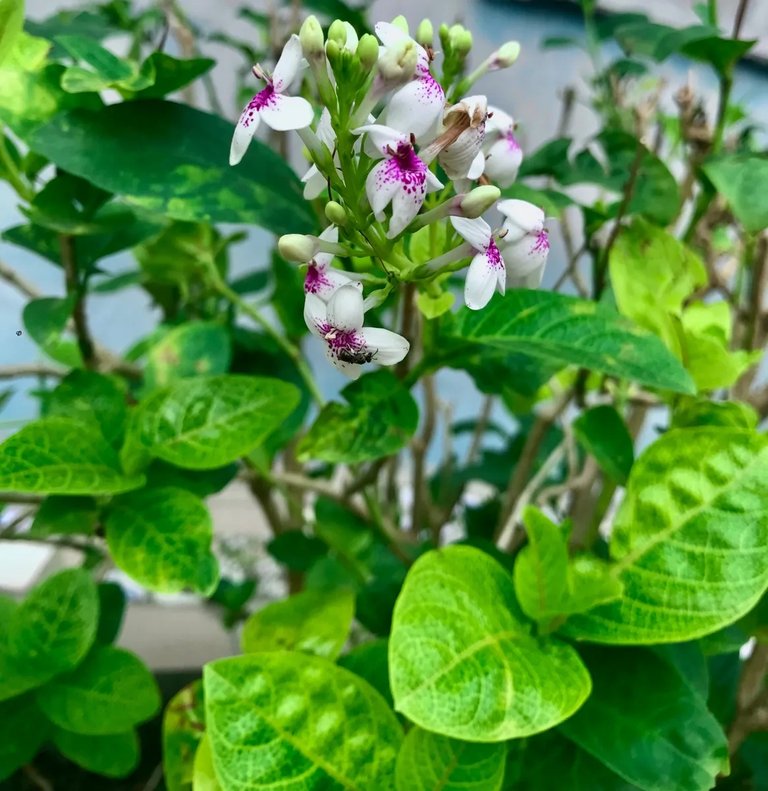
Hace poco tuve una experiencia humillante similar en el banco. Había ido a recuperar mi tarjeta del cajero automático que se había quedado atascada en la máquina. Pero el personal no paraba de pasar de mí. Nadie quería ayudar. Estuve sentada más de una hora, ignorada e invisible. Me hervía por dentro. Me levanté para marcharme antes de que mi frustración se desbordara de un modo que lamentaría. Pero al llegar a la puerta, la primera mujer que me había remitido me detuvo. Sin dar muchas explicaciones, me acompañó a la puerta y me pidió la tarjeta. No tardó ni veinte minutos.
Estas experiencias me han enseñado a tener paciencia, no la pasiva, sino la que me permite tener el control. He aprendido a no dejar que la gente me obligue a salirme de mi carácter.
Desde muy joven me di cuenta de que la mayoría de las decisiones que tomaba por enfado nunca salían bien. Así que ahora, cuando ocurren situaciones como estas, mi voz interior me susurra paz...
"Respira. Deja que pase. No cambies la paz por el caos".
Cuando llego a casa, lo escribo todo en mi diario; sin censura, emocional, crudo. Me desahogo como nunca podría hacerlo en una conversación. Y después, siento como si todo el dolor, la frustración, la amargura y el peso de la experiencia se hubieran disipado, dejando tras de sí sólo paz y consuelo. La mayoría de las noches, después de escribir, me duermo en pocos minutos. En paz.
Algunos tragos amargos se sirven calientes, a través de la injusticia, la falta de respeto, el silencio, la intimidación o el rechazo. Pero incluso cuando me veo obligada a tragarlo, me recuerdo a mí misma que no tengo por qué dejar que irradie y se convierta en parte de mí. Porque he aprendido que la paz, cuando se elige intencionadamente, es fuerza, no debilidad.
Imagen 1 de @protokkol las demás son mías.
Translated with DeepL.
View or trade
LOHtokens.@phyna, You have received 1.0000 LOH for posting to Ladies of Hive.
We believe that you should be rewarded for the time and effort spent in creating articles. The goal is to encourage token holders to accumulate and hodl LOH tokens over a long period of time.
Sending you Ecency curation votes.😉

Thank you dear☺️
Es cierto a veces reaccionamos de manera exagerada ante situaciones triviales, pero es justo lo que necesitamos para crecer y madurar. Un saludo bella
Sí, es algo que tenemos que superar. He visto a gente perder oportunidades por ello.
Gracias querida, por tu apoyo🤗.
Al final uno aprende que no vale la pena odiar, que la ira hace más daño al que la experimenta y que aquel que nos brinda los peores tragos amargos es quién más hiel tiene en su corazón, porque uno termina brindando a los demás lo que lleva en su interior.
Muy linda publicación ☺️
Absolutamente cierto.❤️
Gracias por su encantador comentario.